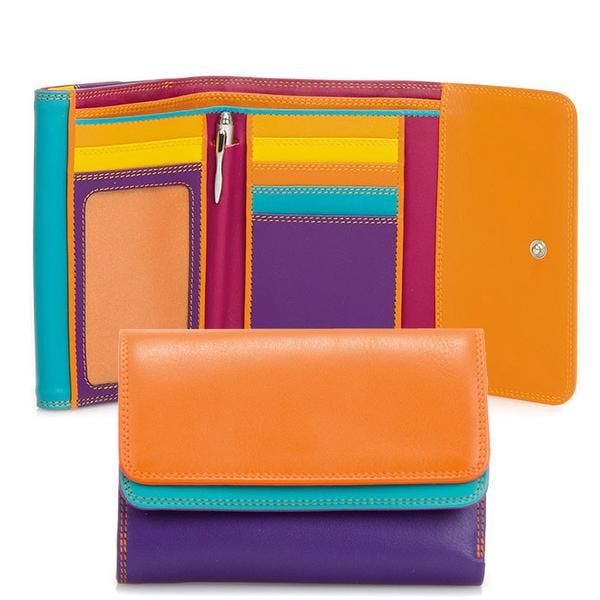
I’d never heard of wallet name until about a week ago. Then, even more recently, I learned that wallet name can mean two entirely different things.
The first meaning—the one I originally encountered, I think on Bluesky—is not “the name of a wallet” (like, say, Mywalit, pictured above) but “the name in a wallet”: your legal name on a government-issued document such as a driver’s license or identity card, as opposed to, say, your online pseudonym or a new name you’ve chosen to replace the one assigned to you at birth..

A wallet name can be problematic for some people. Here’s how the Geek Feminism Wiki explains it:
Policies that require people to use their wallet names can lead to discrimination against certain classes of people, including Transgender people, people who don’t have WASP names, etc. For a more complete list of people potentially affected, see Who is harmed by a “Real Names” policy?
Beyond that, it is false to assume that people’s wallet names follow a certain pattern or will look a certain way or will solve certain problems. Some people are mononymous and have that on their government issued ID; some people have names with more than two parts; some names are very long or very short; and of course wallet names are not guaranteed to be unique in anyway [sic].
Wallet name was new to me, but it’s been floating around for at least a decade. Wiktionary’s earliest citation is from Approaching the Future, by the British futurist Ben Hammersley, which was published in 2013: “How long before the authorities want to check not just your wallet name's criminal record, but also your online identities'? If I'm applying for a Green Card, it can't be long before BlueStilettos123 has just as much to prove as Ben Hammersley.”
There’s a second meaning to wallet name. It’s the name of a wallet—the virtual wallet used keep cryptocurrency1 keys safe and accessible. Here’s Coinbase’s self-promoting explanation:
Unlike a normal wallet, which can hold actual cash, crypto wallets technically don’t store your crypto. Your holdings live on the blockchain, but can only be accessed using a private key. Your keys prove your ownership of your digital money and allow you to make transactions. If you lose your private keys, you lose access to your money. That’s why it’s important to keep your hardware wallet safe, or use a trusted wallet provider like Coinbase.
The crypto wallet provider’s name is not your crypto wallet name. Your crypto wallet name is any moniker you choose. “Name it something meaningful to you but not obvious,” suggested a Reddit user in a thread posted in 2020.
Interestingly, neither sense of wallet name appears (yet) in Urban Dictionary.
And what about the word wallet? It’s one of those frustrating “origin unknown” words. It originally meant “a bag for holding provisions, clothing, books, etc., esp. on a journey either on foot or on horseback”; according to the OED, Chaucer was the first writer to use it, in the late 14th century. The money-holding sense of “a flat bag, usually of leather, closed by a flap fastened with a button or clasp, or secured by a band” is U.S. in origin and first appeared in 1843. The wallet in “digital wallet” or “electronic wallet”—”a device, application, or online service that can be used to make financial transactions electronically, and which may also store electronic forms of items such as receipts, tickets, and identity documents”—dates back to 1982.
I have broken my head several times trying to understand and explain cryptocurrency. See here, for example. I feel a tiny surge of pleasure whenever I read that the crypto markets are sagging.




I am torn between wanting that absolutely adorable wallet and wanting to burn down its hideous name.
wrt the first meaning, I use the term "check-signing name," but I see now that this is an anachronism. (My everyday name is not the same as my given name.) "Wallet name" seems like a useful update.